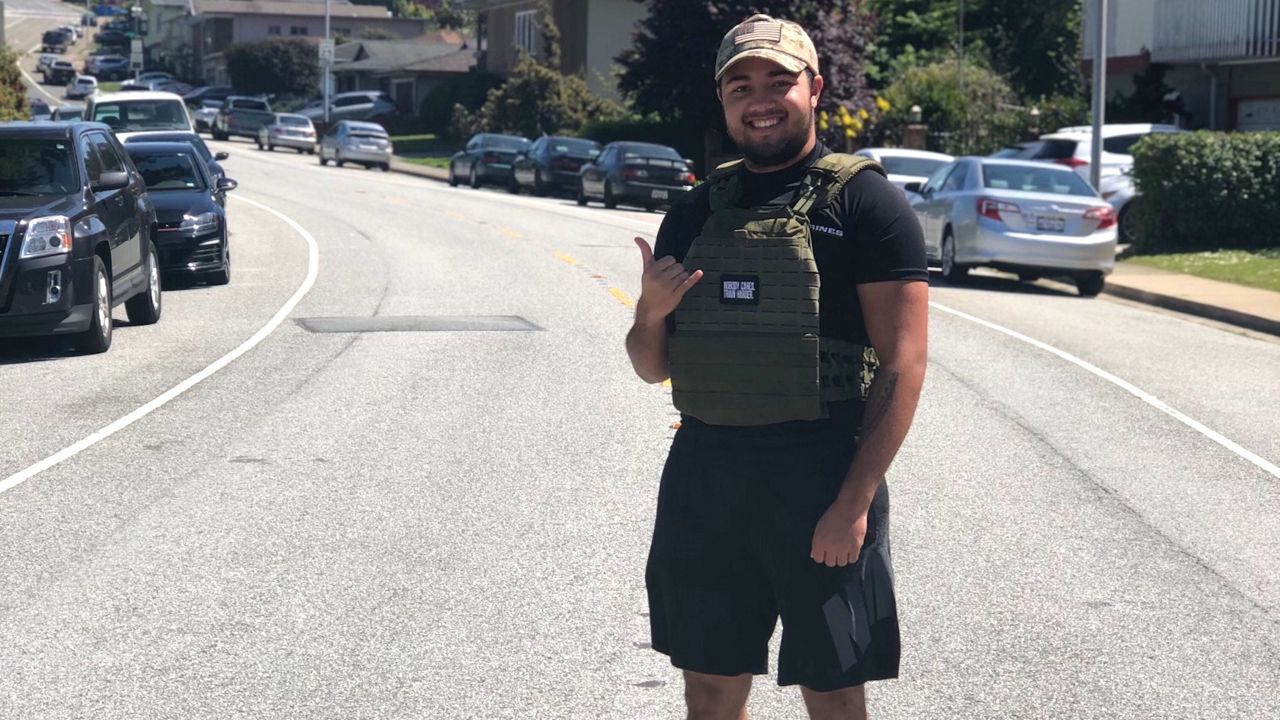LOUISVILLE, Ky. — Kaycen Bradley grew up in Glasgow, Kentucky with dreams of joining the U.S. Army. After graduating from high school in 2016 and moving to California, he began working with a recruiter to make his dream come true.
Then, in July of 2017, a tweet from former President Donald Trump brought an abrupt halt to those plans. Several months prior, Bradley, who is transgender, had started hormone replacement therapy. Trump’s newly announced ban on transgender service members would prevent him from joining, Bradley was told.
“I actually backed away from joining for about a year,” Bradley told Spectrum News 1. “During that year span, I got used to the new hormones that I had to be taking in order to really progress in my transition. I had also had surgery on my chest. So I had a lot going on.”
But Bradley held on to his dream, confident that the ban would not last forever. “It’s just a policy that doesn’t back up American values,” he said. “Anyone should be able to serve. And even if it was a long wait, I was willing to wait that out."
The wait ended Monday when President Biden issued an executive order overturning Trump’s ban.
“America is stronger, at home and around the world, when it is inclusive. The military is no exception,” the order said. “Allowing all qualified Americans to serve their country in uniform is better for the military and better for the country because an inclusive force is a more effective force. Simply put, it’s the right thing to do and is in our national interest.”
Chris Hartman, the Louisville-based Executive Director of Fairness Campaign, praised Biden’s overturning of the “dumb and dangerous transgender military ban.”
“All Americans who have the desire and ability to serve their country should have fair and equal access to do so,” Hartman said in a statement. “Thousands of transgender Americans are currently serving their country with dignity and honor — I am so glad President Biden has sent the clear message that their service is equally valued.”
Transgender service members and those aspiring to join their ranks have seen a rollercoaster of orders related to their ability to serve in recent years. In 2016, President Barack Obama’s Defense Secretary Ash Carter said for the first time that transgender service members were allowed to serve openly. He also announced a July 1, 2017 deadline for the military to begin allowing transgender recruits.
But President Trump put a stop to that. In July of 2017, he tweeted that “our military must be focused on decisive and overwhelming victory and cannot be burdened with the tremendous medical costs and disruption that transgender in the military would entail.” In effect, Trump returned the military to a pre-2016 policy which banned transgender troops from serving openly.
A series of legal challenges followed, culminating in April of 2019, when the final version of the Trump administration ban went into effect. Transgender troops and recruits who’d already signed a contract would be allowed to transition if they’d already received a diagnosis of gender dysphoria. But new recuits with gender dysphoria would no longer be allowed to enlist and troops who had not yet begun transitioning would be forced to live as their biological sex.
At the time there were roughly 15,000 transgender troops in the military.
Bradley said the policy forced them into hiding. “It kind of took us back to the ‘don't ask, don't tell’ era,” he said, referring to the miltiary's former policy on sexual orientation. “You didn't get people to stop serving. You just cause them to have to hide and stress and worry.”
And the military likely missed out on willing recruits. It’s a problem Defense Secretary Lloyd Austin alluded to in a statement this week. “I also believe we should avail ourselves of the best possible talent in our population, regardless of gender identity,” he said. “We would be rendering ourselves less fit to the task if we excluded from our ranks people who meet our standards and who have the skills and the devotion to serve in uniform.”



